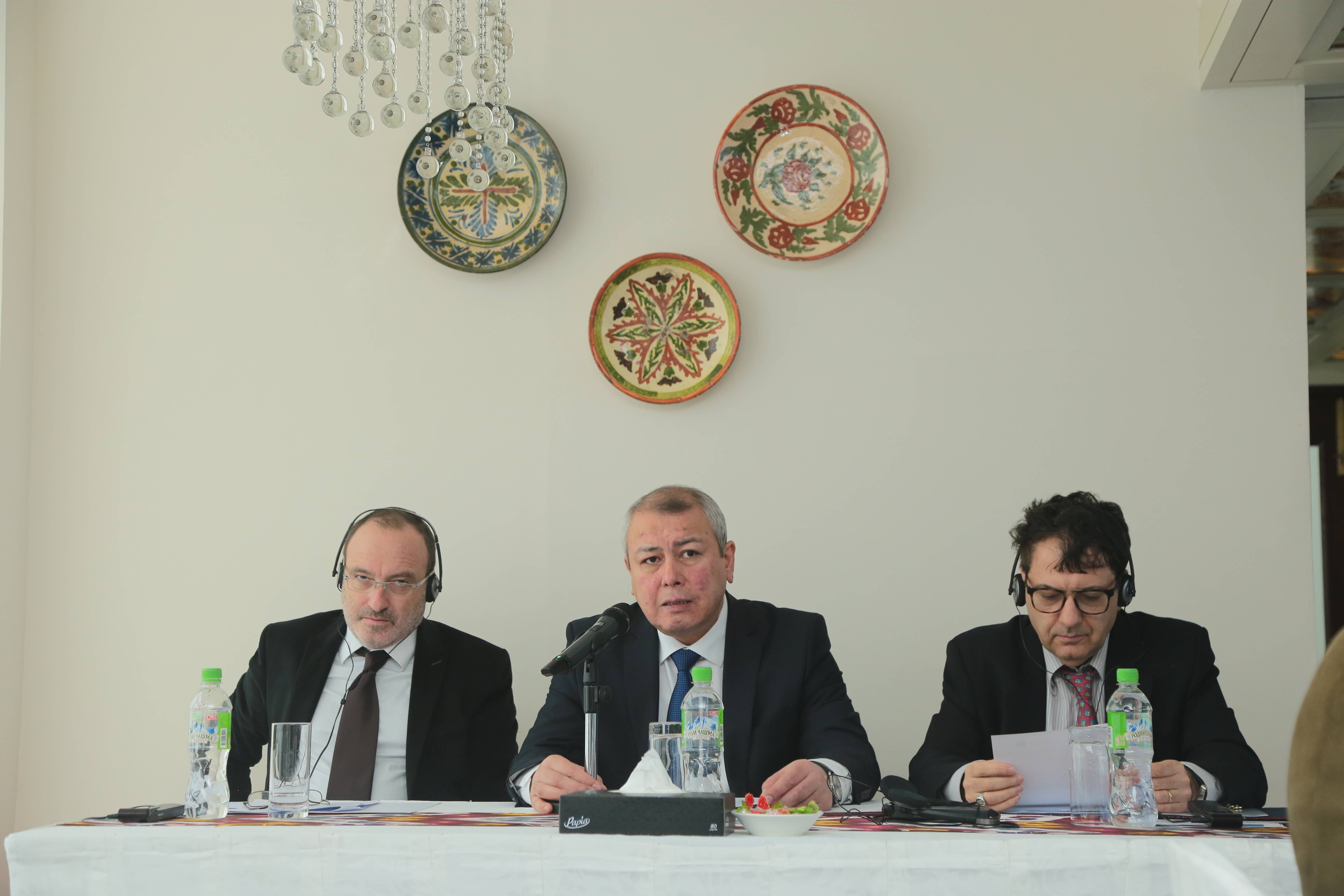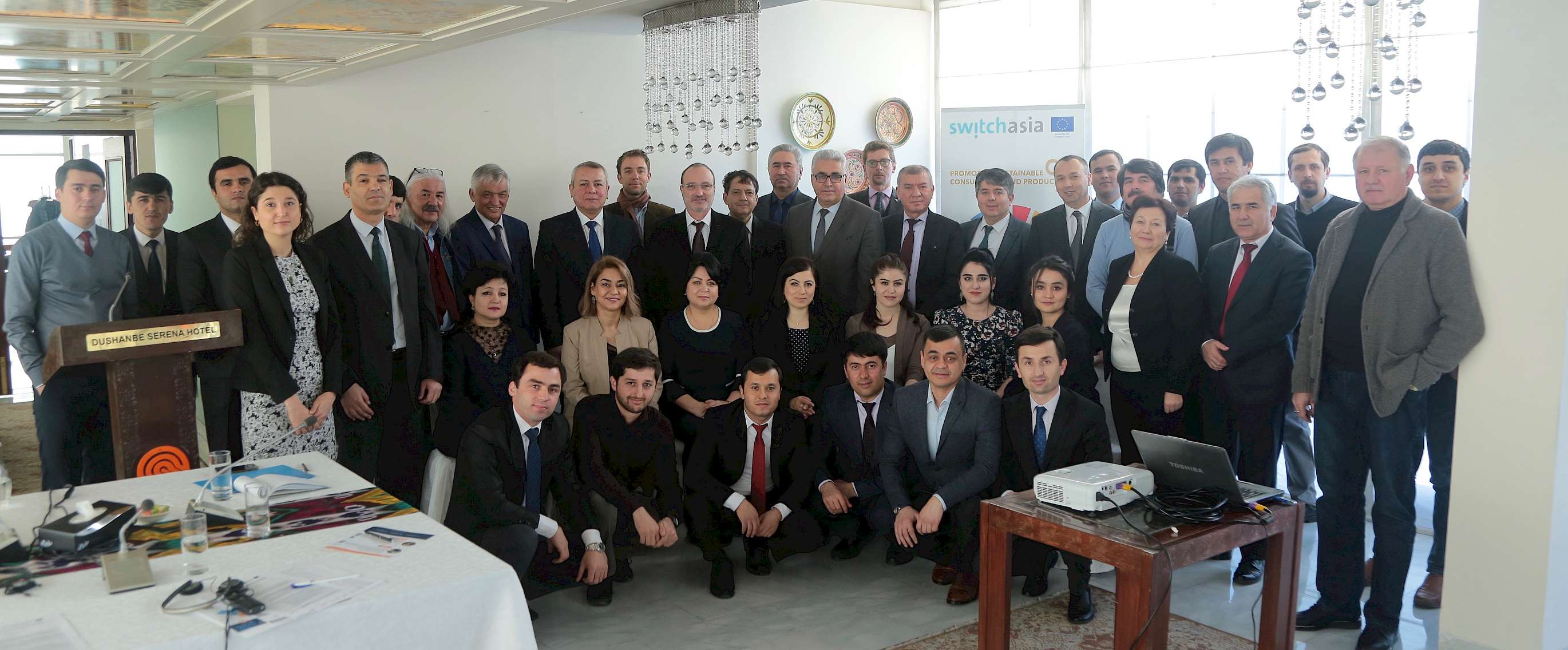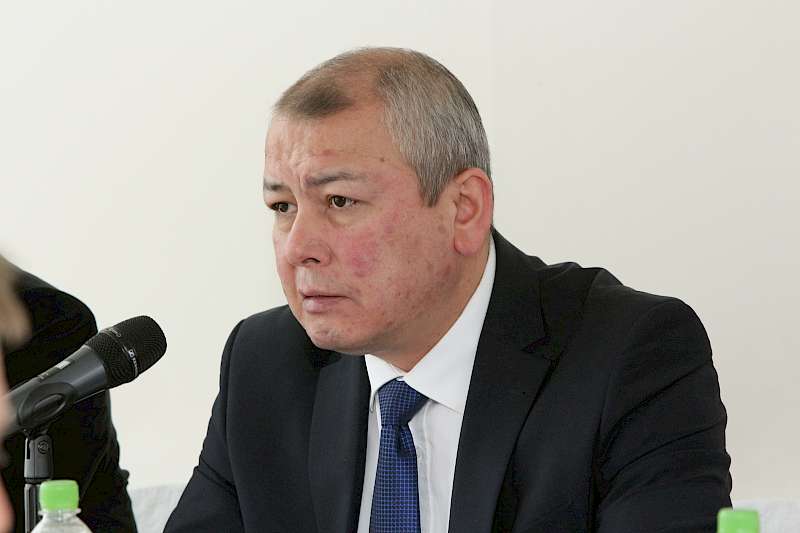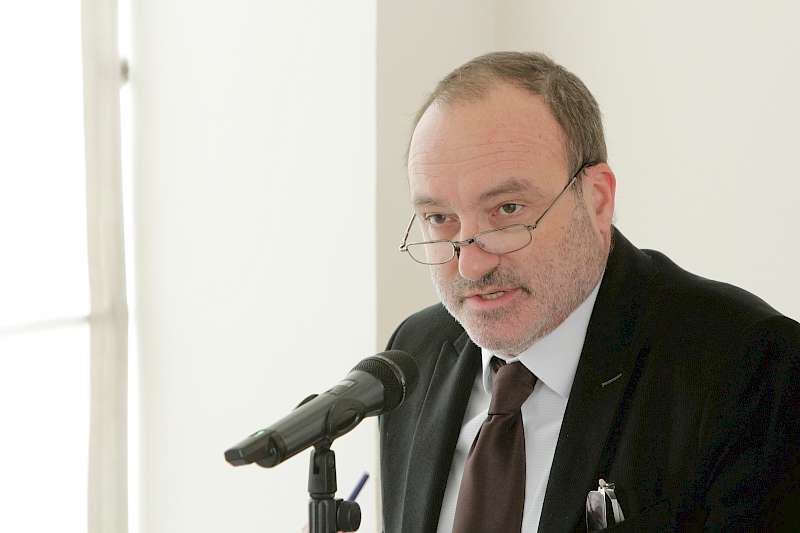
Dushanbe, 6 March 2020 – The SWITCH-Asia SCP Facility supported by the Ministry of Economy and Industry in Tajikistan organised the first Multi-stakeholder Consultation on Sustainable Consumption and Production (SCP). The event brought together around 40 stakeholders, including policy makers, practitioners and civil society to discuss challenges and identify national priorities on SCP, ultimately strengthening Tajikistan’s work towards achieving the United Nations Global Sustainable Development Agenda 2030 and shifting towards a green and circular economy.

Countries in Central Asia are at different stages in terms of awareness raising and policies towards shifting to SCP. Various measures and programmes related to SCP exist in Tajikistan, such as: the National Development Strategy (to 2020) which includes commitments to the SDGs and a legal framework for a number of SCP-related topics. Recently, a series of laws were developed in relation to environmental protection, ecological education, alternative sources of energy, drinking water and supply, as well as environment monitoring. Relevant programmes include: ecological education, drinking water availability, renewable energy. Policies and programmes related to water efficiency, solar energy, agriculture, education and science are also under development.
Considering the critical importance of an integrated and responsible management of the water resources, the President has recently launched the international decade of action on “Water for Sustainable Development 2018-2028” and a rational use of trans-boundary freshwater resources in the Central Asian region. The “Strategy for Development until 2030” was adopted. The Ministry of Health and Social Protection of Population has initiated the implementation of GHS (globally harmonized system) of classification and labelling of chemicals to minimize impact on the environment and health. The Green Economy Concept is also under development with the support of the Organization for Security and Co-operation in Europe (OSCE).
Considering the complexity of the consumption and production systems, the country needs to focus on a few driving priorities to demonstrate how to induce and deliver change while strengthening collaboration between the various stakeholders. These include: food security and people’s access to good quality nutrition; energy efficiency and energy saving standards in the building and construction sector; effective use of secondary resources such as municipal waste, sewage water/sludge.
Ashurboy Solehzoda, First Deputy Minister, Ministry of Economic Development and Trade explained,
the concept of sustainable consumption and production (SCP) is mutually related to increasing the environmental friendliness of goods over their entire life cycle, stimulating demand for more environmentally friendly products and production technologies, and assisting consumers in making informed decisions.
 He also reinforced Tajikistan’s commitment to addressing these global challenges with its partners in Asia and Central Asia. The interactive discussions between the various stakeholders resulted in three main priorities as driving forces to deliver impact towards a green and circular economy through the promotion of sustainable consumption and production; these concern: elaborating a communication and education programme on healthy and responsible food systems, promoting energy efficiency and developing energy certification of buildings, and developing a tools box for waste minimization and prevention through efficiency and environmentally-friendly technologies.
He also reinforced Tajikistan’s commitment to addressing these global challenges with its partners in Asia and Central Asia. The interactive discussions between the various stakeholders resulted in three main priorities as driving forces to deliver impact towards a green and circular economy through the promotion of sustainable consumption and production; these concern: elaborating a communication and education programme on healthy and responsible food systems, promoting energy efficiency and developing energy certification of buildings, and developing a tools box for waste minimization and prevention through efficiency and environmentally-friendly technologies.
Referring to the major policy frameworks the EU has developed towards SCP, such as the various directives on resource efficiency, green economy, circular economy and plastics, Stefano Ellero, Head of Cooperation Section, European Union Delegation to the Republic of Tajikistan stressed the importance of this first National Multi-Stakeholder Consultation and the alignment of SWITCH-Asia’s objectives not only to urgent EU environmental priorities but also to those concerning Tajikistan.
While current challenges persist in the process of moving towards a circular economy and adopting SCP practices, mainstreaming SCP tools and practices in relevant policies, greening the supply chain, inducing responsible consumption behaviour and production processes and supporting well-defined and targeted communication and education strategies, remain high-level national priorities for providing needed opportunities for effective transformative actions.
 Current unsustainable consumption and production patterns characterised by inefficiency, despite the various policies and action plans, make these consultations extremely important for building a shared understanding between all stakeholders on the challenges and opportunities for actions as well as the need to strengthen partnerships in order to mainstream SCP effectively and across sectors. Considering the cross-cutting nature of SCP, effective actions should embrace a systemic, integrated and lifecycle approach. These consultations will be followed by the elaboration of a cooperation programme between the EU, through the SWITCH-Asia programme, and the Ministry of Economic Development and Trade, associating concerned Ministries and Stakeholders.
Current unsustainable consumption and production patterns characterised by inefficiency, despite the various policies and action plans, make these consultations extremely important for building a shared understanding between all stakeholders on the challenges and opportunities for actions as well as the need to strengthen partnerships in order to mainstream SCP effectively and across sectors. Considering the cross-cutting nature of SCP, effective actions should embrace a systemic, integrated and lifecycle approach. These consultations will be followed by the elaboration of a cooperation programme between the EU, through the SWITCH-Asia programme, and the Ministry of Economic Development and Trade, associating concerned Ministries and Stakeholders.
Presentations
Photos
Media Contact:
Sara Gabai,
Communication and Knowledge Expert
SWITCH-Asia SCP Facility
T:+66 (0) 2 651 8799 ext. 20


